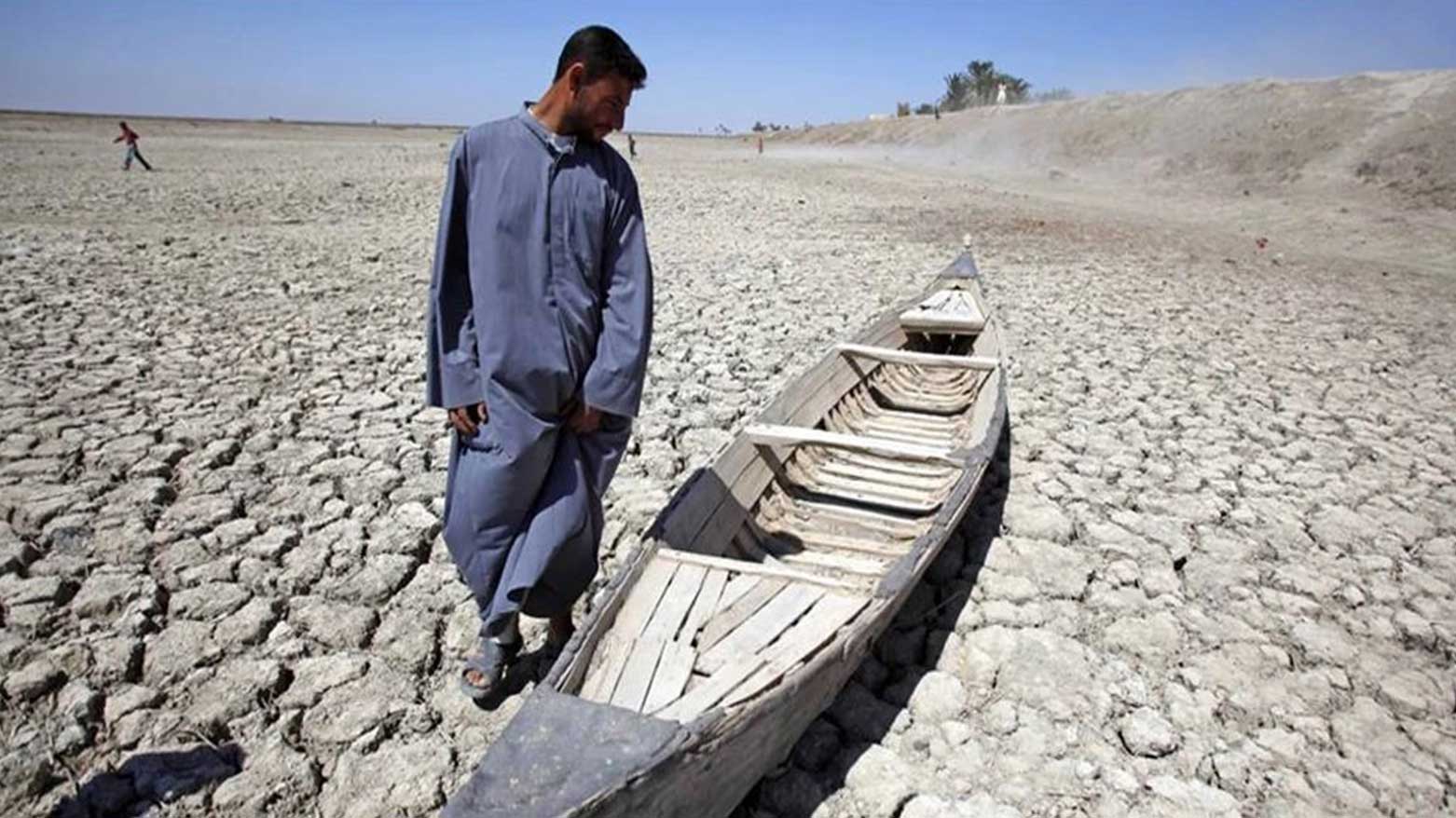From Land of Two Rivers to a Thirsty Country: Iraq's Water Crisis Hits Breaking Point
Iraq’s historic “Land of Two Rivers” faces a severe water crisis, forcing Babil residents to travel for water, sell livestock, and abandon dried lands.

ERBIL (Kurdistan24) – In the parched and dusty plains surrounding the ancient city of Babil, located in central regions of Iraq, a grim and desperate ritual now defines daily life. Villagers, their faces etched with the worry of a five-year drought, line up with their trucks and tuk-tuks, waiting for a water distributor to dispense a precious thousand liters, a meager supply that must be carefully rationed and will be gone in just two days.
This is the stark and devastating reality of a nation historically celebrated as the "Land of Two Rivers," the cradle of civilization, now facing a catastrophic water crisis that is transforming its very identity into that of a thirsty country, forcing its people into a daily, exhausting struggle for survival.
The effects of the prolonged drought in the southern and central regions of Iraq have moved far beyond agricultural inconvenience; they are now an existential threat to the communities that have called this land home for generations.
The crisis has become a multi-layered burden. The initial problem of securing enough clean drinking water has now been compounded by the impossible task of keeping livestock alive, the very animals that once formed the backbone of the local economy.
In the desolate region around Babil province, the human cost of this crisis is starkly visible.
"I travel 15 kilometers to get water for washing, and 20 kilometers to get drinking water," Ali Kazim Jamal, a local villager, told Kurdistan24's correspondent Hoshyar Banani, his words painting a picture of a life consumed by the relentless search for a basic necessity.
Ismail Hassan, a water distributor who witnesses this struggle every day, described the plight of his customers. "They are poor people in a desolate region," he said. "Service projects have stopped, and some of them don't own cars, so they come by tuk-tuk or truck to take a thousand liters for themselves, and they have to return again after two days."
This constant struggle for water has forced families into an impossible choice. "I have 30 to 40 cows and about 100 sheep," explained villager Jabbar Bani Abd. "Everyone here is a livestock owner, but we are selling them. Now, we must either provide water for ourselves or for our animals. We can't provide water for the animals because it is so difficult to secure it even for ourselves."
This forced sell-off of their primary source of livelihood is a devastating economic blow, a crisis that has become so all-encompassing that the desiccation of their orchards and agricultural lands is a topic they no longer even bring up, a loss so total it is taken for granted.
For those who remain, it is often because they have no other choice.
"We haven't had water for five years, and our lives depend on our land and our animals. How can we live?" asked Ihsan Abdulali, another villager. "Those who had money have left the village, and those who don't have stayed here."
His words capture the grim reality of a slow-motion displacement, a silent exodus of those who can afford to flee, leaving behind the poorest and most vulnerable to face the encroaching desert alone. Despite their continuous and desperate complaints, the residents say, no responsible authority seems to be listening.
The crisis unfolding in the villages around Babil is a microcosm of a much larger, national catastrophe that has been building for years, a perfect storm of climate change, regional geopolitics, and chronic internal mismanagement.
As previously reported by Kurdistan24, Iraq's water reserves have plummeted to their lowest levels in 80 years, a situation exacerbated by insufficient rainfall and a drastic reduction in the flow of the Tigris and Euphrates rivers, largely due to the extensive damming by neighboring countries, particularly Türkiye.
The Iraqi Parliament’s Agriculture Committee has issued a dire warning that the lives and livelihoods of an estimated 20 million citizens are now in jeopardy.
This water scarcity is having a cascading and devastating effect on the country's environment and its people.
In a recent and alarming report, the Green Iraq Observatory revealed that the nation has lost a staggering one million trees over the past two years, succumbing not only to the drought but also to deliberate sabotage, including arson for the sake of land grabbing and the illicit timber trade.
In the historic Mesopotamian Marshes of southern Iraq, a UNESCO World Heritage Site, the water crisis has destroyed livelihoods, with residents reporting that dozens of their precious water buffalo are dying every day, forcing a mass displacement from these ancient wetlands.
The human toll of this environmental collapse has been documented by the International Organization for Migration (IOM), which has reported that nearly 170,000 individuals have been displaced by climatic factors, including crippling water scarcity and land degradation.
This has led to a public health crisis, with the Iraqi Ministry of Environment recently being forced to admit to the contamination of drinking water in the Middle Euphrates provinces after initially dismissing reports as politically motivated propaganda.
The Strategic Center for Human Rights in Iraq has warned that the country is facing a "humanitarian disaster" and has criticized the government's weak response and lack of effective prevention plans. While diplomatic efforts to secure a greater share of water from upstream neighbors have so far failed to yield results, the reality on the ground continues to worsen.
In the land that once nurtured the world's oldest civilizations, its modern-day inhabitants are now left wandering in search of a single sip of water, their ancient identity as the people of the two rivers slowly and tragically turning to dust.